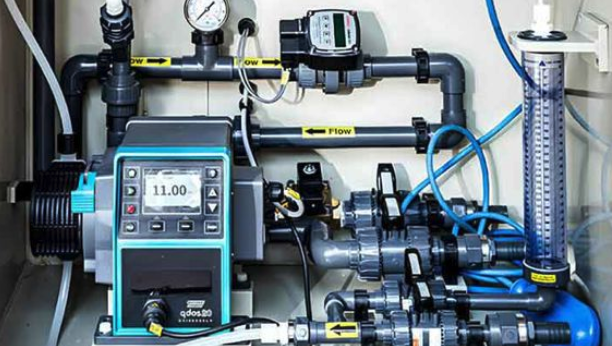Enhancing Chemical Dosing Efficiency in Today's Tough Operating Climate
As wastewater treatment facilities navigate rising operating costs, tighter regulations, and increasing sustainability demands, improving chemical dosing efficiency has never been more critical. Operators must balance cost control, environmental responsibility, and operational effectiveness to remain competitive while ensuring compliance with evolving industry standards.
Adeel Hassan, product manager at Watson-Marlow Fluid Technology Solutions (WMFTS), highlights this shift:
“Amidst escalating operating costs and stricter regulations, improving chemical dosing efficiency is key to enhancing performance and sustainability.”
So, how can wastewater treatment (WWT) plants optimize chemical dosing while meeting these challenges head-on?
The Role of Precision Chemical Dosing in WWT
Accurate chemical dosing isn’t just about adding the right amount of chemicals—it’s about minimizing waste, ensuring regulatory compliance, and maximizing treatment efficiency. Whether managing phosphorus removal, pH control, or disinfection, the right dosing technology makes a significant difference.
Let’s explore some key considerations for optimizing chemical dosing in wastewater treatment.
1. Cost Control & Competitiveness
Rising operational expenses require smart cost management. WWT facilities must modernize infrastructure, expand capacity, and reduce energy consumption to meet net-zero carbon targets.
Solution:
Qdos chemical metering pumps from WMFTS offer precise dosing from 0.1ml to 2,000ml per minute, helping reduce chemical use and costs.
More accurate dosing means less waste, lowering overall expenses and improving sustainability.
2. Staying Ahead of Regulatory Changes
Global regulations continue to evolve, requiring treatment plants to upgrade equipment to meet new standards. For example:
The European Council Directive 91/271/EEC mandates that by 2040, all discharged water from large plants must be free from harmful chemicals.
In the U.S., the EPA’s Safe Drinking Water Act periodically updates legal limits on contaminants.
Solution:
Optimizing chemical use with advanced metering pumps prevents overdosing, minimizes waste, and ensures compliance with effluent standards.
Avoiding non-compliance fines and reputational damage makes investing in better dosing technology a smart financial decision.
3. Prioritizing Safety in Wastewater Treatment
Handling chemicals like ferric chloride, sodium hypochlorite, and pH adjusters presents safety risks. Many traditional pump systems require full disassembly for maintenance, increasing spill risks and exposure hazards.
Solution:
Qdos pumps feature built-in leak detectors that automatically halt operation and alert users upon pumphead failure.
Unlike traditional pumps, maintenance is tool-free and spill-free, significantly improving worker safety.
4. Optimizing Equipment Performance & Longevity
Investing in high-efficiency dosing pumps helps plants reduce downtime, extend equipment life, and lower ownership costs.
Solution:
Qdos pumps eliminate the need for pulsation dampeners and additional components, simplifying operations.
Their long-lasting design and quick-change pumpheads ensure minimal downtime and easy maintenance.
Using more concentrated chemicals means fewer refills, lower energy consumption, and reduced transportation costs.
5. Sustainability & Water Conservation
With growing emphasis on reducing water footprints, WWT facilities are looking for ways to reuse and conserve water while lowering supply costs. Onsite assessments help identify efficiency gaps and sustainability improvements.
Solution:
WMFTS’ EcoVadis gold certification reflects its commitment to sustainability, ensuring businesses invest in greener, more responsible pumping technology.
More efficient dosing minimizes excess chemical use, reducing overall environmental impact.
6. Real-World Impact: Achieving Efficiency Gains
A WWT facility in Hessisch-Lichtenau, Germany, saw impressive results after installing a Qdos dosing pump:
✔ 97.5% reduction in phosphorus load
✔ Lower CO₂ emissions due to precise ferric chloride sulfate dosing
This case study demonstrates how precise dosing technology delivers tangible environmental benefits while optimizing efficiency.
Why Investing in the Right Dosing Technology Matters
By improving chemical dosing efficiency, wastewater treatment plants can:
✅ Reduce chemical waste & operating costs
✅ Ensure compliance with evolving regulations
✅ Enhance worker safety & system reliability
✅ Contribute to sustainability goals
✅ Achieve measurable efficiency gains
At Bobcat Industrial Air Services, we help WWT facilities integrate cutting-edge dosing solutions that improve performance and sustainability.
📞 Ready to optimize your wastewater treatment processes? Contact us today for expert solutions!

